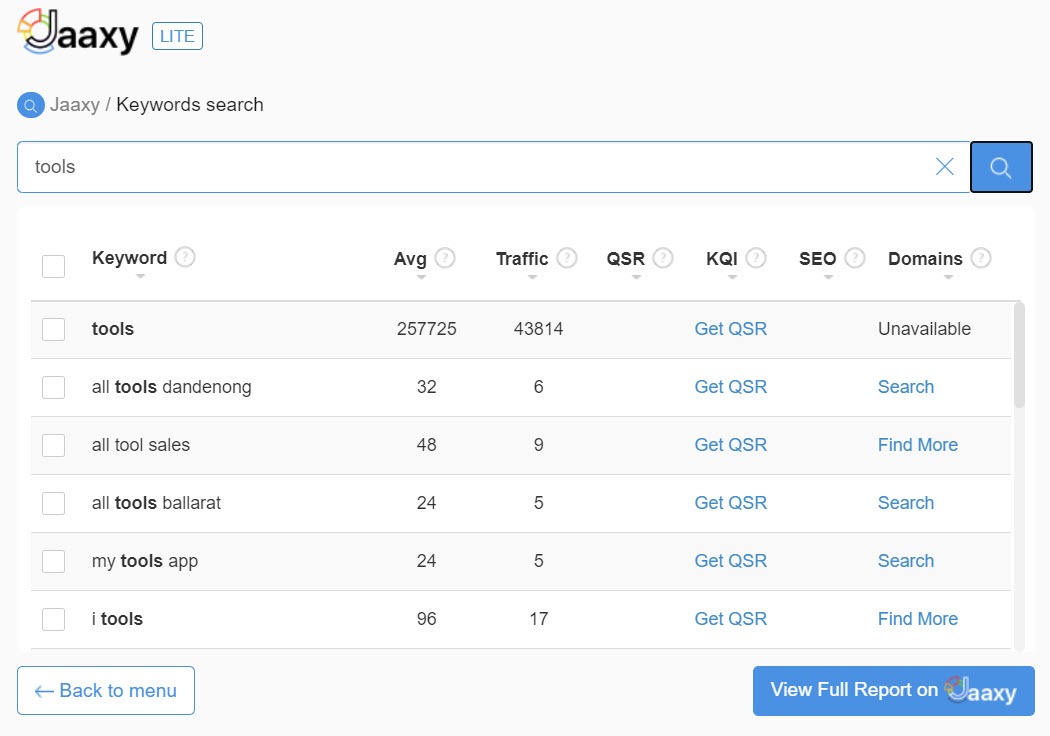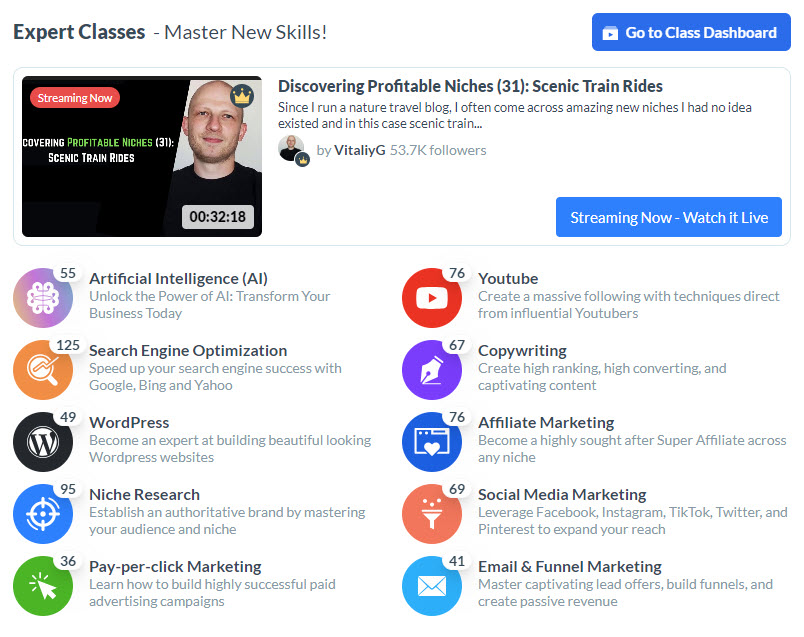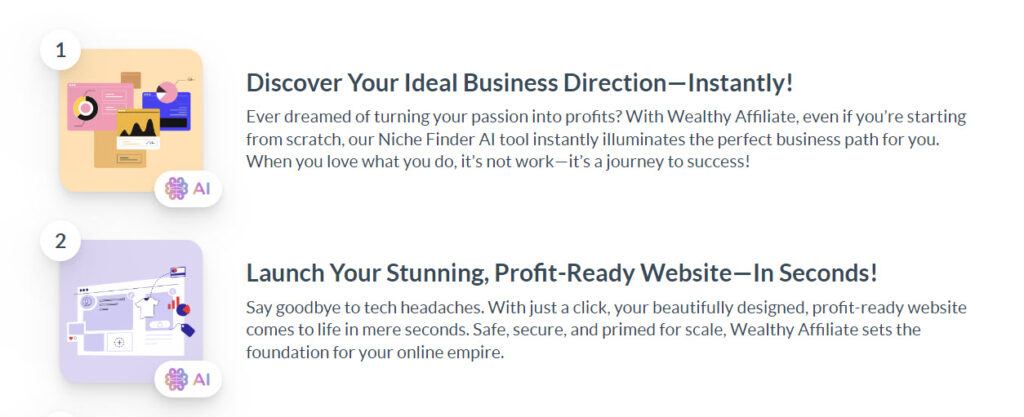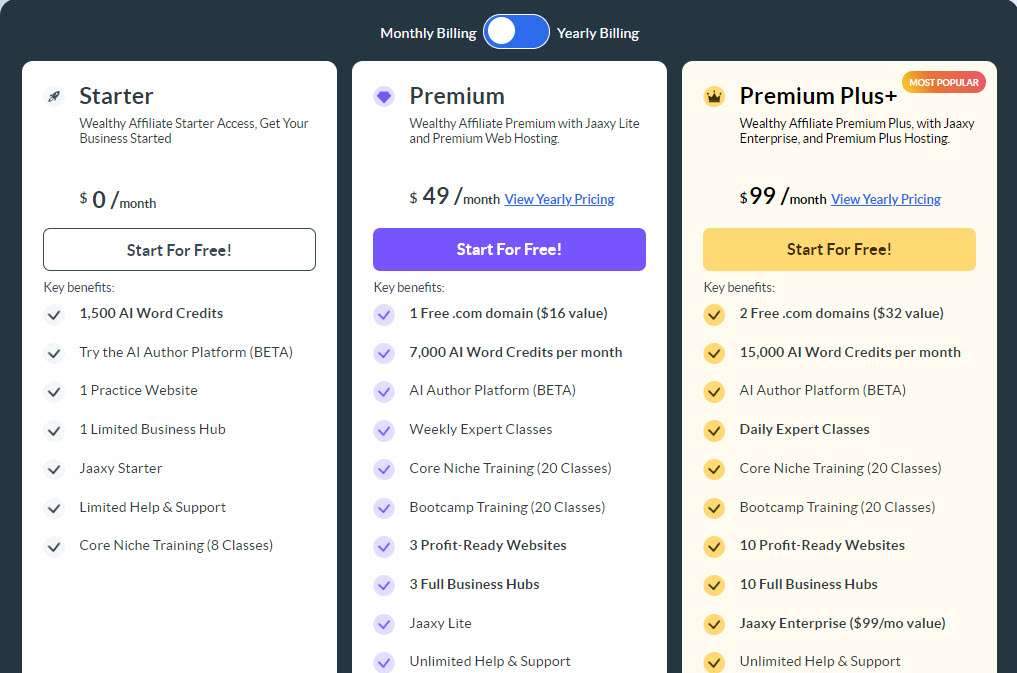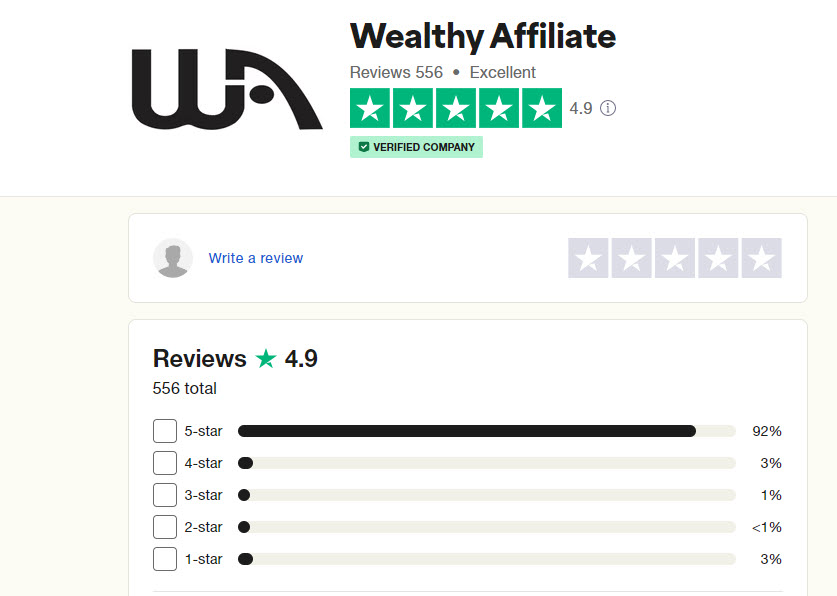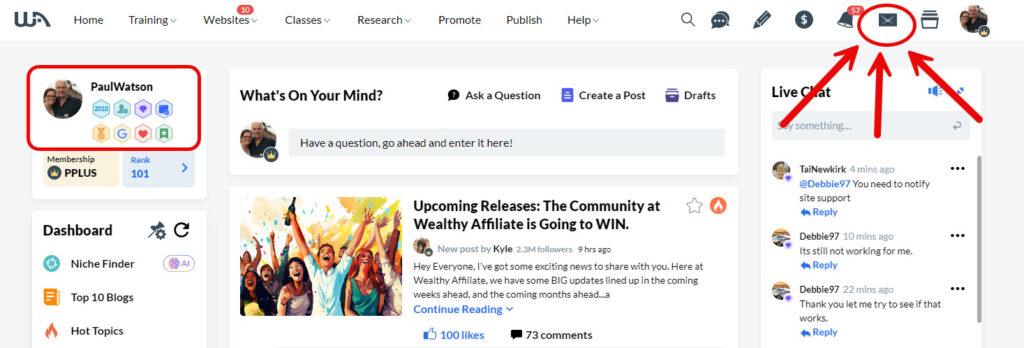Hey there Sea Changers and welcome back. Today we are going to tighten things up as we discuss how to sell tools online. Why have I picked this topic? Well, as is commonly the case, my inspiration has come from a discussion with some friends around a camp fire on the weekend.
You see they are tradesman (a builder, an electrician and a roofer walk into a camp site… haha) and they were discussing tools. Interestingly they then also started listing their favorite online stores so naturally I of course wondered if they are doing it, then how many others are too?
So for those of you looking to make money selling tools online, then let's see if this could be worthwhile looking into…
How do we get started?
Just so we can be sure that my mates above are not the only people in the world online shopping for tools, let's make sure there is a market there. I mean I am pretty confident, but let's just check anyway… Firstly, did you know that the global hand tool market is worth around $USD 17.5 Billion per annum? That's pretty good I think considering those figures do not include power tools or machinery. Not a bad start…
What are people looking for?
As we continue, let's just confirm our market numbers:
1. Number of monthly searches
As we are looking to see if there is an interest in the purchase of tools online (so we can sell them), our first check is for purchase related searches. You will need to find yourself a good keyword tool (I use Jaaxy) and enter in the keywords that best describe your market. In this case, let's start with the basics:
Ok, so we know people look for tools online – over 257000 of them in fact. – interestingly though there is not much else in this search to go on in regards to possible niche ideas. Let's dig a little deeper:
I broke the search down a little to come into line with our stats above… over 4000 people per month search for hand tools. And we can also start to see some sub niche ideas here as well in terms of searches for power and woodworking tools. This can definitely help us to get an idea of what people really want online. Just to round things out a little, let's come at this from left field for a minute…
I just wanted to check out if brands were a factor here – I have to admit, I didn't expect those numbers. Just to be sure, I did some other searches too:
- DeWalt – 179000+ searches
- Bosch – 145800+ searches
- Milwaukee – 233000+ searches
Those numbers are huge and make this a fantastic niche if you were looking to set up an online business around these name brand tools (reviews, comparisons etc.). So all in all, I think we can see that there is a definite opportunity here. But just so we have all bases covered, let's check if it is sustainable…
2. Search Trends
Another important aspect of online sales and niche selection is to check that interest is maintained over time. To gain an insight into this let's check out how the searches for a few of our tool related searches are trending online.
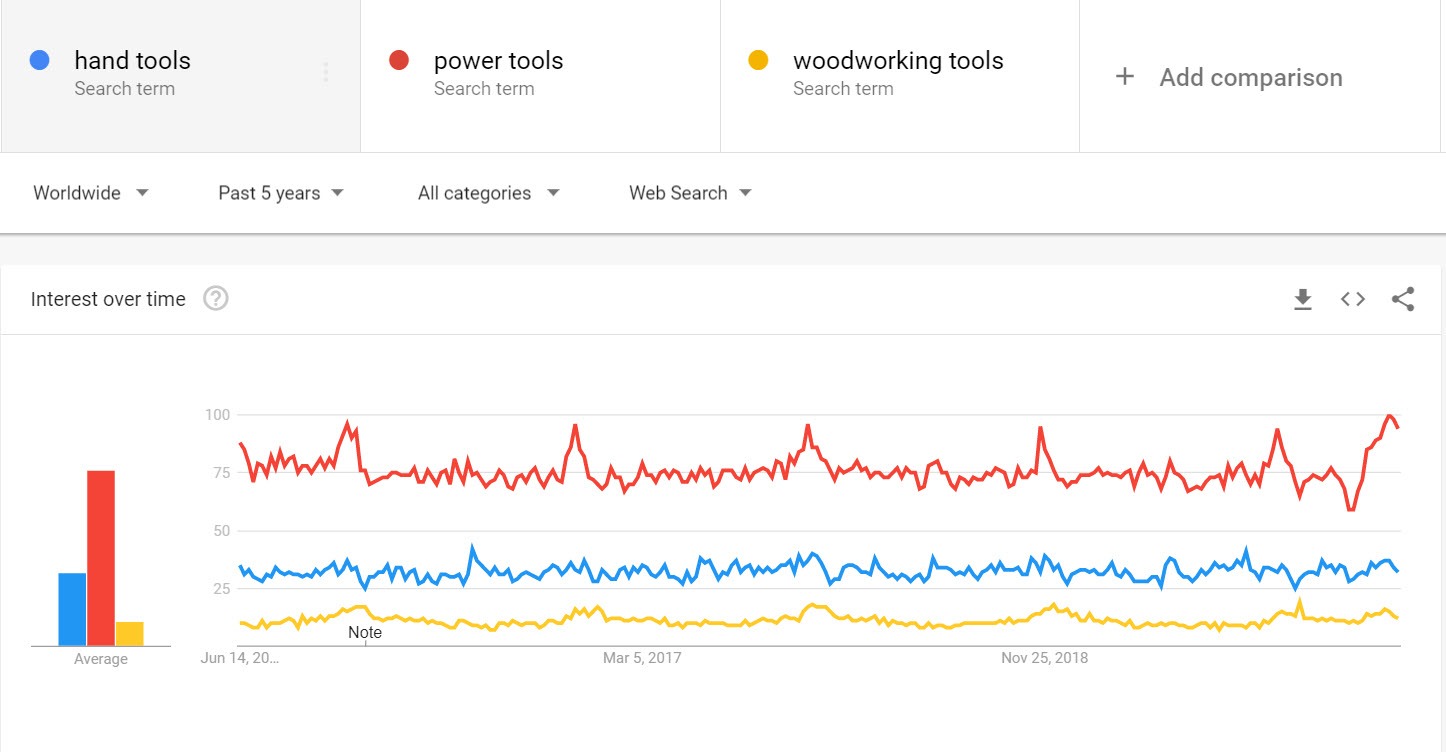
Ok, so we can see that interest has been maintained fairly well all year round over the past few years – i.e. no seasonal spikes. Again, I think we can be assured of a solid base on which to start our online business.
That's right! Wealthy Affiliate provided me with all of the tools and training I needed to get this post in front of my audience - a.k.a YOU!
You too can start your very own online business here that can make you money from anywhere in the world!!
What is our niche?
Ok, now the fun part begins – In the statistics and screen dumps above, we can already see that much of the interest in tools centres around brands however that does not mean you cannot make a decent online income working within specific tool or tool use areas as well.
The decision you have now is to determine whether you wish to create your online business covering one of these subjects, or concentrate on another specific area or sub niche. There are a good number of different areas you could explore here – and off the top of my head, some examples include:
- Hand Tools
- Power tools
- Brand name tools
- Garden tools
- Specific use tools
- High end specialty tools
- Commercial/factory tools
- Machinery
And that is just a few – all of which can be marketed from the point of view of the writer, or simply as a means of supplying information to those looking to purchase. As you start to think about this, the question to ask yourself is whether the content you are covering is too large to cover effectively. The risk here is that if you start with a niche that is too broad, you may not be able to cover everything to the level required or to become authority on the subject – which you will need to be if you are going to convince people to purchase from you and not their local store. Don't forget, you can always add a new section to your site as you grow as well.
As you work through narrowing your targeted niche, consider the following:
- Are you able to solve a problem – Most people undertake searches on the internet to solve a problem – see next section.
- Is it a subject that you have an interest, or knowledge in– I am guessing that you are in this post as you know about, or have an interest in tools. If you don't have either of these, maybe consider another market as to be honest, you might struggle to produce solid content if you don't know much about them – or worse, have no interest in them at all. Trust me, people will know immediately if your information is not up to scratch or can put the success of their job at risk.
Let's investigate this a little further by discussing the problem solving elements of niche selection.
[elementor-template id=”3325″]
What problem are we solving?
If this is a niche that you are interested in, you may already know what it is that you are trying to sell. If not, then maybe start to look at it from the perspective of solving problems. This, added to your area of interest is a great way to work out exactly what you think you might like to base your online business upon.
Think about your own search behaviours when you are online – I would hazard a guess that most searches you do are in order to solve a problem. Now think of these in a manner in which someone might have problems within tool related niches such as:
- You know what you want to buy a new power drill but don't know which one is ‘best'.
- You have a problem and need a solution – I.e. “I have to tighten a nut in a small enclosed area – what can I do?”.
Your goal here is to determine just what problem/s you are trying to solve for your readers. This maybe one problem that spans your site or differ for each post that you write. For example, if you have chosen power tools for your niche, then problems might be:
- Matching products to use– They want to know what the best electric saw would be for commercial use with hard wood.
- Which to buy – There are a number of electric nail guns on the market – but which is best on a budget?
In these cases, people would be searching for those topics based on having a problem and needing a solution. Your site would outline and review the best options for them.
Alternatively, if your site is about a particular brand, then you would be addressing problems such as:
- What models are ‘best' for each purpose?
- Should you consider a particular brand of consumable (nails, drill bits, screws etc.)?
- How should they be stored?
- Can you get them on a budget?
- Do they need to be serviced?
- How long should they last?
Note: You do not need to identify every possible problem that your readers may have straight away. In many cases, the more you write, the more ‘problems’ will present themselves so initially you really just want to make sure that there are some that may need solving as we have found here.

How are you going to convince them to buy?
Now that we know our niche (or are at least working on it) and have an idea of the types of problems that we want to solve, there is one last thing to consider which is the online purchase behaviour of your targeted audience.
The first thing you would need to consider is exactly who will be looking at your site. The first group that comes to mind are those who want to get the best options they can to keep their workshops stocked for whatever it is that they may need to fix. Then there are the weekend warriors who have a hobby that requires tools for specific needs. And of course those who are using tools for their livelihoods will want the best they can get for the best price. Some examples include:
- Those that are purchasing for a specific need will want to know exactly what they are getting and are happy to pay for it however others may be looking for the same option but at a price a little gentler on the back pocket.
- Professional tradesman etc. will want to know all about the latest options, updates and products available and may dissect your reviews with a fine toothed comb.
- If you are dealing with those just looking for a tool to fix that nagging repair need, make it as easy as possible to get a decent product for a decent price – give them the information and let them get on with it.
- And finally don't forget those who need tools as part of their passion or hobby (such as doing up a car etc.) – they have potentially unlimited buying power as long as they have all the details.
So at the end of the day, even though we do have purchaser behaviour on our side, to be successful in selling tools online, consider the following:
- Solve problems without purchase – That's right – write your posts in a way that actually makes it easier for people to do their research and buy elsewhere – by doing this, you are solving problems and helping readers out. If they trust you, they will be more likely to return next time and buy from you then – especially if you follow up with posts on similar or compatible products or accessories that might interest them!
- Provide the intangibles – One major disadvantage when it comes to selling anything online is that we can’t really know what the products look and feel like to work with. And the same goes for terminology – after all, even harmless words such as ‘tough’ or ‘multi use’ can mean different things to different people. Your posts will need to cover this information in a manner that puts minds at ease and explains some of the intangibles.
- Know your audience – A big mistake many make here is to target the product and not necessarily the buyer. This is especially important when dealing with a budget minded audience. It is very easy for example to get carried away explaining how great a cordless drill because it is cheap all the while forgetting that those intending to use it are doing so daily meaning it could wear out quite quickly. The same goes for high end options… Expensive doesn't always mean longer lasting or a better fit. Make sure you do your research on the buying behaviours of those you are targeting before writing your posts.
Tip: Still not sure? Have a look and see what others are doing. It might just help you with some ideas.
How do we sell tools online?
And then we come to probably the most important aspect of this whole online selling caper in that we need to consider how we are going to sell the products that we have decided to promote. Depending on the product, there are a number of methods you can use to do this. Let's explore them below:
Affiliate marketing
Affiliate marketing is the process of selling products via programs that are setup directly by companies or marketplace platforms (Amazon, Ebay etc.) that allow you to join and then refer traffic to them through customised affiliate links. In short, this means that you will write about your chosen area within the tool niche (in the spirit of solving problems as discussed above) and then refer your readers to a link where they will purchase directly from the vendors. The vendors then pay you a commission for the sale.
Affiliate programs are especially good for those selling tools online as you can move seamlessly through changes to product technologies for example without needing to sell out of previous stock first. This way you can promote/review the latest products and then refer your readers to the vendor to manage the sale without you having to hold inventory or organise shipping.
Finding affiliate programs is generally not a difficult task either. To locate them, you would normally just type “Affiliate: niche” into your preferred search engine. Below is an example for search results on power tools affiliate programs:
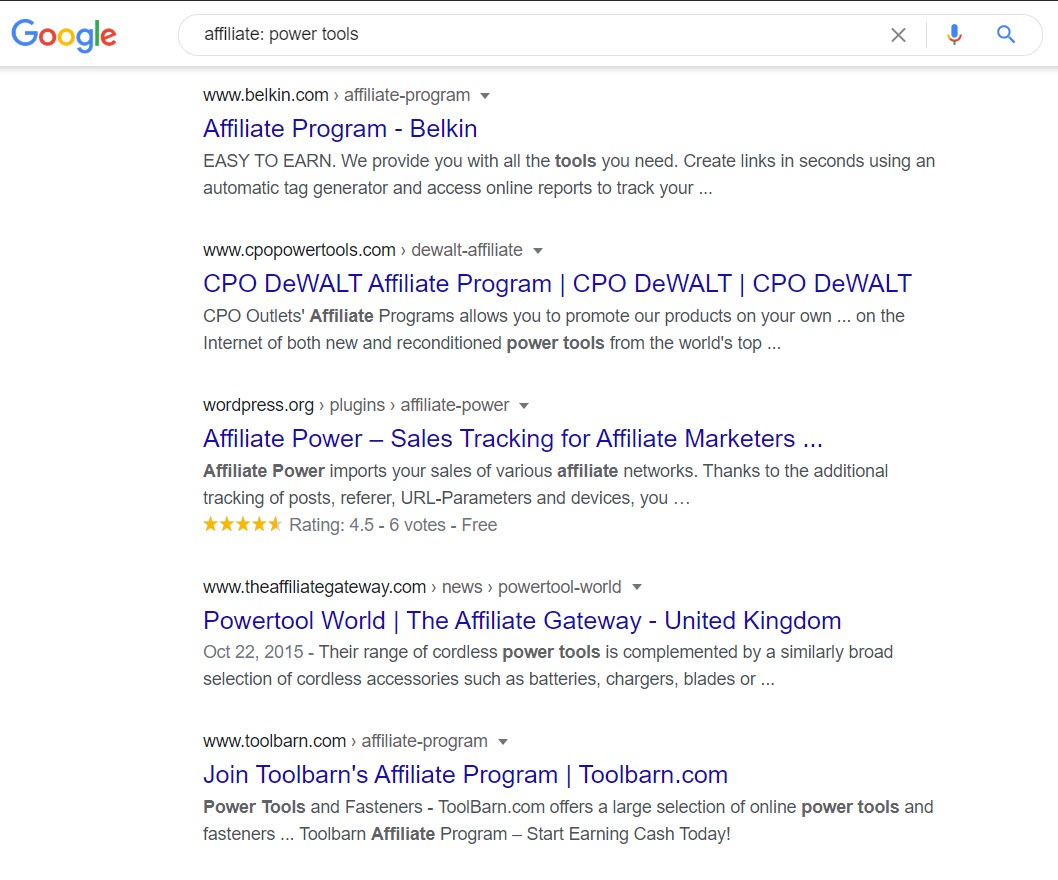
So, as you can see, there are plenty of options in regards to affiliate programs for tool related niches. As you search through them all, you can check it all out and find programs that:
- Relate to your niche/problems that you are solving.
- Have quality products – your brand can be severely damaged if you promote poor quality or unsafe products.
- Have solid payment and customer service arrangements.
- Pay decent commissions.
- Have good testimonials covering commission payouts and quality of product.
- Whether they have high ticket items you can promote on the side.
In most cases, you will need to apply for the program before you are allowed to promote their products – don’t take this step lightly or you will be rejected. Affiliate programs will generally want to know:
- Your website name.
- Traffic levels.
- Why you want to join – (“so I can make money by selling your circular saws online” is unfortunately not generally a good enough answer).
- How you plan to promote their products.
One thing to be aware of here I guess is to keep in mind the issues we discussed earlier in regards to selling tool related products online. You need to make sure that the programs you choose can be trusted and that the consumer is comfortable that they have recourse if something goes wrong.
For this reason you will need to make sure that your chosen programs are going to resonate with your readers and your niche. That said, some marketplace programs such as Amazon and EBay can give you access to these types of products and as they are more trusted, then they maybe worth a look as well.
Dropshipping
Dropshipping is something that may be of advantage to you in this niche if you are looking to play with pricing on your products (price can be a big seller in this niche). This process is similar to affiliate marketing in that you are generally promoting the products of others without the need to actually hold any inventory.
With affiliate marketing, you are paid a commission on whatever price the vendor sets but do not manage any customer service, sales processes or post sales requirements. The main difference with dropshipping, is that you perform the following (there are a number of variations to this but this is the guist of it):
- Strike a relationship with a wholesaler.
- Promote the product for whatever price you see fit – often via a marketplace site such as Shopify, Amazon or Ebay.
- Manage the sales processes and customer service.
- Send the final order and payment to the wholesaler for packaging and shipping.
The money that you make is effectively the difference between whatever you managed to sell the product for and the wholesale price that you owe the vendor. The other advantages of dropshipping over affiliate marketing is that:
- You own the customer list – which is another means of building an effective email list.
- You control the cost of the product and hence the profit margins.
- You can control when you put things on ‘sale', group them in packages or increase the price for high demand items.
The disadvantages however are the extra workload in handling payment and any ongoing customer service requirements.
To find dropshipping suppliers online, you can enter searches such as “dropship: hand tools” into your favourite search engine:

Note: These results will usually be based on your geographical location.
From here you can search through and find programs that:
- Offer dropshipping services – Not all product suppliers offer dropshipping as a service – this may just mean that you need to organise the shipping yourself after it is delivered to you.
- Have experience and are helpful – If they are not helpful and/or appear inexperienced then you can expect the same when you are trying to process sales.
- Have acceptable fees – most dropshipping wholesalers will charge a small fee for the dropshipping service – just make sure it is not so high that it eats into your profit margins.
- Provide fast shipping – One disadvantage with dropshipping when dealing with vendors is that the customer is yours, not theirs hence sometimes shipping priorities are not where they should be – make sure shipping times are acceptable.
- Have quality products – as with affiliate marketing, don't sell rubbish.
- Have a good name – do your research and see what others are saying about them.
Sell your own
If affiliate marketing or dropshipping are not something you are interested in, maybe you could try sourcing and selling your own products. This process (commonly known as ‘white labeling') is especially popular within this niche as it is not difficult to find brandless products to sell. Here you actually purchase your product from a vendor or wholesaler, add your own label and then on-sell them via your website or platforms such as Amazon etc.
This process requires a much higher setup costs as you will need to purchase your products, create and affix your labels and manage orders and shipment. Some wholesalers/vendors however will affix the labels that you send them and then manage the packaging and shipment for you (see dropshipping above). This will cost you less to set up but obviously you will make less on the sale once they take their processing fee.
Again, to find out where to acquire your product, do a search for “wholesale: tools”:

Note: These results will usually be based on your geographical location so you may at times need to sort through a few pages.
From here you will need to follow the same processes as with affiliate and dropshipping programs in determining whether they are a good fit for your business plans including:
- Relate to your niche/problems that you are solving.
- Have solid delivery and customer service arrangements.
- Have good testimonials covering service and quality of product.
Alternatively, keep your eye out in your local area for exhibitions, swap meets or industry shows. These are a great way to find and purchase your products at good prices – you never know, you might even find a solid supplier for future sales as well.
Tip: This method can be very effective in driving online traffic and sales via the implementation of more traditional sales methods such as kiosks and market stalls etc. As people get to know you, they can purchase from you there and then be directed to your website for future sales.
Other Options
Alternatively, if you have some real skills in this area, then you may be able to look at some other ways to make some good cash online with tools. These can include:
Offer a Service – This is where you perform a task that assists those within this niche such as:
- Using the tools – either by doing it yourself or teaching others to do it.
- Manufacture – make or repair stuff using the applicable tools for example.
These services can be offered in person or demonstrated online via an online course or on YouTube.
Build your own and sell – if you are more on the handy side, then make your own products and on sell them. This could be absolutely anything such as specialist tools, parts and consumables or chemical free cleaning solutions for power tools for example. Items can be made and then sold via a website or marketplace platform such as Amazon or Shopify.

What do we need to do?
Once we have all of the above sorted, or at the very least a plan in place, we need to choose and setup the media that we intend to use to sell our product. This can include:
Build a Website
If you are looking to build your online business as an affiliate marketer, drop shipper or supplier, then chances are you will most probably need a website. Websites allow you to solve problems via blog posts and videos that people can view in order to identify the solutions that they need. Usually, this process is fairly straight forward in that you build your website, write posts (on the differences between certain types of garden blowers for example), then provide links so that your readers can view/purchase the relevant materials from your links.
That's right! Wealthy Affiliate provided me with all of the tools and training I needed to get this post in front of my audience - a.k.a YOU!
You too can start your very own online business here that can make you money from anywhere in the world!!
Promote on Social Media
When it comes to tools, there is probably no more powerful tool than Social media. It has the power to reach thousands and allows you to target specific segments if you choose the correct platform. In terms of tool related products online, a good platform to start with is FaceBook where you can discuss items with your audience, display products in use and show videos.
However, if you are looking to set yourself up as an expert within the niche, then programs such as Instagram, YouTube or Pinterest will be your go to option. This is great for visuals such as pictures and/or videos showing you working with, cleaning or maintaining tools as well as installing and using the consumables/accessories that you are discussing within your posts. And, if you are able to build a following you may even get noticed and be paid gazillions to use certain brand within your pics and videos – this takes time, but it does happen…
Join like-minded groups
Anther great tool when it comes to selling products online are social groups. By getting involved with these groups you can really get a great understanding as to what its members are struggling with, what information they seek and what products they are looking to buy. Below is an example of tool related FaceBook groups:

Note: Many of these groups will not allow you to spruike or promote your sites directly, however if you can interact and demonstrate your knowledge then people will ask you directly for the information. At the very least, as above, it is a great way to get ideas and insight into what people in this area really want to know about and what they are buying online.
Conclusion
And there it is – How to make money selling tools online. I hope it has been helpful and as usual, please do not hesitate to comment below if you have any questions, need some advice or have any experiences to share.
Do you want further assistance with any of the above or need help to build your own tool related website?
Are you looking for a comprehensive training platform that can give you step by step training, 24/7 support, tools to develop and host your very own website, ongoing assistance with SEO and social media and access to some of the best affiliate marketing minds on the planet, then click on the following link to read more about Wealthy Affiliate.
Until next time
Have fun
Paul
Note: If you make a purchase from this page, there is a very good chance that I make a commission from it – these commissions do not increase your sale price.

